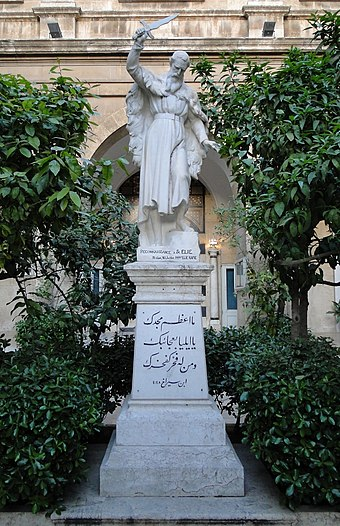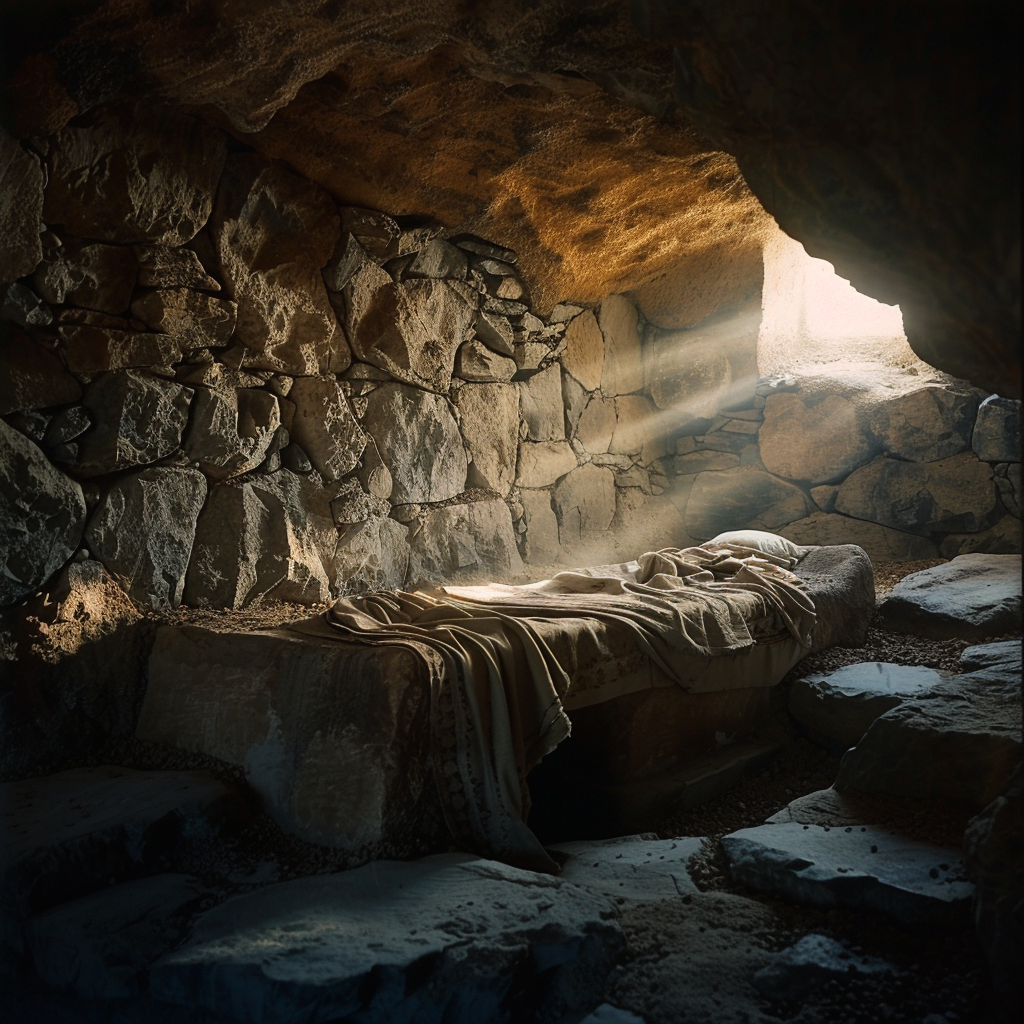Get in touch
555-555-5555
mymail@mailservice.com
I Kings 18 - 19
I Kings 18:
Ahab and Elijah have a Showdown in the Sun
Verse 1 says that after three years of drought, God sent Elijah back to Samaria to “present” himself to King Ahab. God says, “I will send rain to the land.” I don’t know what prompted this act of mercy on God’s part. Why three years? Had anything changed back home or with King Ahab?
The famine was still severe (verse 2). Ahab summoned his servant, Obadiah, who was in charge of the palace. He was a devout believer and had saved hundreds of true prophets by hiding them in caves and feeding them (verse 4). He might be called the Oscar Schindler of ancient Israel. Or maybe, when we refer to Oscar Schindler, we should refer to him as the Obadiah of the Third Reich. Then, when someone asks, “What are you talking about?” You can tell them a story from the Bible. Why did he have to hide the prophets? Because Jezebel was doing whatever she could to kill them. How did he get food during a long drought in the midst of a famine? Was he stealing from the palace storehouses? He must have had accomplices, faithful believers in the God of Israel. Feeding hundreds of people was a lot of work, and dangerous to his career and his life.
Ahab’s heart hadn’t changed. Three years of drought didn’t soften his heart, it seems to have hardened it. He sent Obadiah on a mission to gather up all the grass to keep the horses and mules alive
(verse 5). It sounds as if he put military readiness high on his list of priorities. While Obadiah was making is way throughout the land “gleaning” the fields and warehouses he met Elijah. What are the chances of that happening? Obadiah recognized Elijah on sight
(verse 7). They probably met during earlier visits between Ahab and Elijah. If not, he may have recognized his image on wanted posters.


Above is a statue of Elijah at the Saint Elias Cathedral, Aleppo, Syria. Perhaps they took the image from a statue and placed it on a wanted poster. Wanted! Elijah the Prophet for the killing of the prophets of Baal on Mt. Carmel.
In verse 16 it says that “Ahab went to meet Elijah.” I think that this is very unusual. Protocol states that the people went to the King, not the other way around. When Elijah met Ahab, Ahab said (verse 17), “Is that you, you troubler of Israel?” Ah, yes, always blame the messenger for the problem of the drought. It seems as if Ahab is still clueless as to his role in the drought and famine.
Elijah challenged Ahab to bring representatives from all over Israel to Mount Carmel, along with hundreds of prophets of Baal and Asherah (verse 19). They were going to have a showdown. A competition of sorts to prove once and for all whose God is the real one. This was bigger than any Super Bowl or World Cup event.
Elijah asks the leaders and prophets, (verse 21) “How long will you waver between two opinions? If the Lord’s God, follow him; but if Baal is God, follow him.” Does this sound similar to the challenge Joshua gave the Israelites many years earlier? Joshua 24:15, “But if serving the Lord seems undesirable to you, then choose for yourselves this day whom you will serve, whether the gods your forefathers served beyond the river, or the gods of the Amorites, in whose land you are living. But as for me and my household, we will serve the Lord.”
The response from the people was blank stares, verse 21, “But the people said nothing.” Why? Perhaps because the King was there, and they didn’t want to reveal their true feelings. Then Elijah challenged them. The prophets of Baal and Elijah will each take a bull to offer as a sacrifice to each of their gods. Both the prophets of Baal and the God of Elijah will call upon their gods and whoever answers, then he’s the one true God. Finally, the prophets of Baal responded, (verse 24) “What you say is good.” Bets were probably being made and vendors were set up to sell beverages and snacks.
The prophets of Baal went first. They cried out to their god all morning (no response). Then they shouted, as a sign of desperation (again, no response). Then they started to dance around the altar (again, no response). Elijah must have thought this was funny, so he started to mock them. Verse 27, “Shout louder, perhaps he is deep in thought, or busy, or traveling or sleeping.” Today we might suggest, “Maybe his internet connection was lost.” The prophets shouted even louder and then things got really ugly. They started to slash themselves (verse 28).
Pagan prayers oftentimes rely on repetition, ritual and drama to get their god’s attention. Jesus, on the other hand, said, “When you pray, do not keep on babbling like the pagans, for they think they will be heard because of their many words” (Matt. 6:7). God doesn’t like to be nagged. He’s also very busy, so state your business and move on.
I imagine that during the middle of the afternoon the prophets were emotionally and physically exhausted. Medics were probably on hand to bandage the prophets’ self-inflicted wounds and to treat cases of heat exhaustion and sunstroke. There never was a response from their god.
By now the altar, which had been neglected for years, was in shambles. Elijah stepped forward and put it all back together for his turn at getting his God to respond (verse 30). There were twelve stones, one representing each of the twelve tribes of Israel.
Then, just to make the competition more interesting, he had the altar doused with water, three times. And no, the conspiracy theories that it was really gasoline that he poured on it are without any basis in fact.
Then it was his time to pray. No theatrics. No shouting. No dancing. No slashing. He said a simple prayer, (verse 36-37), “O lord, God of Abraham, Isaac, and Israel, let it be known today that you are God in Israel and that I am your servant and have done all these things at your command. Answer me, O Lord, answer me, so that these people will know that you, O Lord, are God, and that you are turning their hearts back again.”
Then the real fireworks began. Verse 38, “Then the fire of the Lord fell and burned up the sacrifice, the wood, the stones and the soil and also licked up the water in the trench.” God loves to put on a big show.
How did the people respond to this dramatic display of power? Verse 39, “When all the people (not the prophets) saw this, they fell prostrate and cried, ‘The Lord-he is God! The Lord-he is God!’” In other words, “We’re done with this Baal fellow, he’s worthless.” The people professed, but not the prophets of Baal.
Then Elijah called for the prophets of Baal to be slaughtered (verse 40). Now that the people finally confessed that the Lord alone is God, Elijah prayed for rain, and it came. Elijah then went up to the top of Mt. Carmel and prayed, looking for rain clouds. Before long there was a sighting of clouds forming (verse 44). Elijah said, “go and tell Ahab, ‘Hitch up your chariot and go down before the rain stops you.’” Meanwhile, the sky grew black with clouds, the wind rose, a heavy rain came on and Ahab rode off to Jezreel” (verse 45). If they hadn’t rushed off to Jezreel, the roads would have become flooded, and chariots don’t do very well in the mud. There wasn’t room in the chariot for Elijah, so he had to run to avoid the storm. “He ran ahead of Ahab all the way to Jezreel.”
1 Kings Chapter 19:
Jezebel Wasn’t Happy with Elijah
Verse 1, “Now Ahab told Jezebel everything Elijah had done.” Wouldn’t you love to hear this conversation? “How did the spiritual Olympic games go, dear, did our prophets win the gold?” She wasn’t happy at all with the news. She sent a memo to the Prophet Elijah, verse 2, “May the gods deal with me, be it ever so severely, if by this time tomorrow I do not make your life like that of one of them (her prophets of Baal).”
Translation: “I am going to do whatever I can to kill you, ASAP.” Even after Elijah’s victory over the prophets of Baal Elijah is frightened and heads south to avoid the wrath of Jezebel. He even left the country, to the very southernmost city of Beersheba in Judah (verse 3). There he leaves his servant in town and then heads out into the desert. He left Israel for Judah, head to the very most southern city in Judah, then heads into the desert. Could he go any further?
What was Elijah’s state of mind? He prayed that he might die! Verse 4, “I have had enough, Lord, take my life.” He then collapsed in exhaustion and fell asleep. Can you identify two other Old Testament individuals who also wished that they had never been born or that they were dead? Job and Moses.
For days now Elijah had been under extreme stress with his confrontation with King Ahab and the hundreds of priests of Baal. Sleeplessness, hunger, stress, physical and emotional exhaustion had led to depression. He is suffering from what soldiers experience when they’ve been in combat for too long. The condition has been identified as shell shock, battle fatigue and more recently, post-traumatic stress syndrome (PTSD).
What’s the treatment for PTSD? Get the soldier out of the battle, give him a hot shower, hot meal, a clean bunk and let them rest for a few days.
After a good long sleep, an angel touched him and said, “Get up and eat.” He ate, then went back to bed to sleep some more (verses 5-6). After more sleeping, eating and being cared for by an angel, he headed for Horeb, or Mt. Sinai, which was a forty-day hike. There he found a cave to spend the night (verses 8-9).
At Mt. Horeb, God asks Elijah, “What are you doing here?” There is no indication in Scripture that God told him to go to Horeb as he had sent him to other towns. He probably thought that if he could go to where Moses met God, on Mt. Sinai (Horeb) he would do the same. It’s not much different than when people feel that they have to go to a church to pray to be heard by God. People might say, “I feel closer to God in church building.” This feeling might be more a product of conditioning and teaching than anything else. God isn’t a local God who is more available to us in one location than another. God is omnipresent, he is everywhere. He is in all of creation at any given time. Jer. 23:24 says, “Who can hide in secret places so that I cannot see them?” declares the Lord. “Do not I fill heaven and earth?” declares the Lord.” declares the Lord?” Besides, didn’t God hear his prayers on Mt. Carmel?
Now Elijah pours out his heart claiming that he had been zealous for God, but the Israelites have rejected him and killed his prophets and that he was the only one left and am being hunted down like an animal (verse 10). It sounds like he is feeling sorry for himself. It seemed to Elijah that for all the work of God’s people since the time of Moses has come to nothing. “Our team is losing the battle” he might have thought.
What does Elijah need? He needs the same type of message that the church needed at around 90 A.D. Jesus said that he would never leave his church. He said that the gates of hell would not prevail against it. By 90 A.D. all of the apostles except John were dead. John found himself in prison on the Island of Patmos. And no one has heard a word from Jesus in over 60 years. The church, like Elijah, needed encouragement. So, John got the message that Jesus knew exactly what was going on in the churches (Rev. Chapters 2-3). And he revealed to John that he was among the churches and gave him a look into the future which revealed the ultimate victory of good over evil.
Elijah needed a message of encouragement. God caused a powerful wind, then an earthquake, and a fire, yet God wasn’t in these events. This is very similar to the experience Moses had when God appeared to him on Mt. Sinai. Ex.19:16, “On the morning of the third day there was thunder and lightning, with a thick cloud over the mountain, and a very loud trumpet blast. Everyone in the camp trembled.” “Then Moses spoke, and god answered him” (verse 19).
The wind, earthquake and fire were attention getters to prepare Moses and Elijah for what was to come, a message from God. In the case of Elijah, when the wind, earthquake and fire settled down, he heard God whisper, so he went out to the mouth of the cave to listen (verse 13).
Elijah reminds God of his zeal and his discouragement that he was the only prophet left alive. God tells him to go back and anoint Hazael king over Aram and Jesu king over Israel and Elisha as his successor (verses 15-16). He also encourages Elijah by telling him that even when Hazael and Jehu are done killing Israelites, verse 18, “Yet I reserve seven thousand in Israel-all whose knees have not bowed down to Baal and all whose mouths have not kissed him.” God is encouraging Elijah by telling him that he isn’t the only true believer in Israel. God’s plan is working, though it may not be as obvious to us at times. Even Obadiah secretly protected many prophets.
Elisha doesn’t anoint the two kings, Hazael (King of Syria) and Jehu (King of Israel). The anointing was actually done by Elisha. What Elijah did was to designate or identify them as successors to Ahab.
I don’t see Elisha being designated as Elijah’s successor as a criticism of him. Being a prophet on that day was tough work and very demanding, physically, and emotionally. Just as many professions have mandatory retirement ages, it was time for Elijah to step off the stage. Priests in ancient Israel served until they were fifty years of age (Num. 8:25).
In the military, if a soldier has been in a very demanding, high stress environment for some time, and has served admirably in that role, the Army Personnel Division might reward him with a less stressful assignment at a location more to his and his family’s liking. I think this is what God is doing with Elijah. He’s going to reward Elijah with a less stressful duty assignment as a reward for his years of faithful service.
Many professions have a mandatory retirement age. Today, airline pilots retire at age 65, air traffic controllers retire at age 56. Foreign Service employees at the Department of State: retire at 65, with very narrow exceptions. National Park Rangers and firefighters retire at age 57. Many judges retire at age 70. If you want to be able to work in your profession for life, become a Cardinal or Pope, those positions have no retirement age.
Elijah heads to the Desert of Damascus and anoints (designates) Hazael and Jehu and anoints Elisha as his successor. Here’s how that came about. Elisha was plowing a field when Elijah approached him and “threw his cloak around him” which was a signal that he would be his successor. Elisha accepted the position and “took his yoke of oxen and slaughtered them. He burned the plowing equipment to cook the meat and gave it to the people, and they are. Then he set out to follow Elijah and became his attendant (verse 21).”
Elijah killed the oxen and burnt his farming equipment. I wonder how that conversation went back home. “Hi Dad. I think I’m going to give up farming and become a prophet, or an assistant to the prophet Elijah. Perhaps you heard of him.” “Yeah, really. I met him today and he gave me this cloak.”
“Where are the oxen and the cart, son?” His father asked. “Well, it’s sort of like this. In my enthusiasm I killed the oxen and burnt the plowing equipment.” “Not my new John Deere X 300 Super Plow that I haven’t even paid for yet?” asks the father. Well, we can only imagine. I hope his parents were understanding and supportive, and that the John Deere equipment was fully insured.
So, Elisha, the former farmer with calloused hands now becomes Elijah’s assistant, much like Joshua was to Moses. I hope they got along well, and that Elijah was a caring and effective mentor to Elisha.
Recent Articles

29 Mar, 2024
Purim is a Jewish celebration, more like the Fourth of July or Mother’s Day, than a religious holiday like Passover. Purin is usually observed in February or March of each year. The word Purim means, “lots” as in a lottery, which was the means that the villainous Haman, an Amalekite, used to set the date for the massacre of Jews in Persia (previously Babylon). These events in the Book of Esther take place between chapters six and seven of the Book of Ezra. The setting is Persia, seventy years after they were taken into captivity by the Babylonians. Israel spent 70 years in captivity in Babylon, which was later taken over by the Persians in 539 B.C. Just a year later, the Persian King Cyrus decreed throughout his empire that any captive Jews in Babylonia who desired could return to Jerusalem to rebuild the temple. Cyrus even allowed the vessels of gold and silver stolen by Nebuchadnezzar’s troops to be returned. As we will read in Isaiah 48 , they all should have left, but some stayed behind. Let’s look at the cast of characters in this drama. The villain in the story was Haman, an Amalekite. The Amalekites were descendants of Esau, Jacob’s brother. You might recall that these siblings had a long-standing conflict that revolved around the birthright. Esau, the firstborn, sold his birthright to his brother Jacob. The hostility that Jacob and Esau had for one another carried on through the generations like a bad gene. Esau had a grandson named Amalek, from which we get the name Amalekites. These cousins of the Israelites attacked them whenever they had the chance. When the Jews were led out of Egypt by Moses, the Amalekites attacked them in Rephidim, in the Sinai Desert. This unprovoked attack led God to promise to blot out the memory of Amalek from under heaven (Ex. 17:8-14) . Forty years later, in his last major speech to his people, Moses reminded the Jews of the command to go after Amalek (Deut. 25:17-19) . Saul, the first King of Israel, was commanded to wipe out the Amalekites (I Sam. 15:2-3) . But Saul disobeyed and spared the life of King Agag (I Sam 15:9) . This led to the premature end of the reign of Saul (I Sam. 15:23) . Saul, realizing his mistake, subsequently did kill Agag, but one of his sons survived. So not only was he disobedient, but he was also incompetent. Some 500 years later, one of his descendants was Haman. Others in the cast of characters included the royal couple, King Xerxes (some think it was King Ahasuerus or perhaps both names refer to the same person), and Queen Vashti. Then there was Esther, the Jewish maiden, and her uncle Mordecai. And so, with the setting in place, the cast of characters on stage, let the drama that led to Purim begin.
Share this:
Share
Tweet
Share
Mail
Start Here...
Why Study the Bible?
Don’t many consider the Bible to be just a book of myths? Why do we read the Bible rather than the sacred literature of other religions?
How do we know that it is from God? How do we know that what we have today is an accurate translation from the original? Is the Bible complete or have there been some books that have been lost?
We should be able to answer these questions, and there are answers! So start here!
Answers to Common Bible Questions

17 Dec, 2021
Lent is a six week period of spiritual devotion starting on Ash Wednesday and ending at Easter. Those who observe Lent usually give up something for Lent. Some might give up coffee, or soda pop, or alcohol, or chocolate. May I suggest that you give up something that will really impress God and make this season of Lent one of the most memorable and meaningful seasons of your life? May I suggest that if you are giving up something, why not give up some of the acts of our sinful nature mentioned in Gal. 5:19? Why don’t we give up lying about others? Do you think you can give up the hate you feel towards others? How about envy, can we work on putting envy aside this year? How about giving up on the naïve idea that all pastors are mature Christian leaders whose word should always be accepted, rather than wolfs in sheep’s clothing (Matt 7:15). How about giving up the idea that everyone in church is a real Christian (Matt 7:21-23). How about giving up your desire to seek revenge on those who have hurt you (Matt 18:21-22)? If you are insecure and feel threatened when you see the success of others in ministry, how about giving up efforts to hinder others who have been called to minister (Rom 12:4-8)? Of course it is easier to give up something like chocolate, etc. and make yourself feel like you are doing something that is pleasing to God. If you are not willing to give up unchristian behavior, might I suggest something that will really please God this Lent? Give up all evidence of your profession of Christian faith, such as books, pictures and jewelry. Don’t talk about God, Jesus or the Church. I think God would appreciate it if you would stop giving HIM a bad name by the way you live. Let’s give up what hinders our witness and become a better ambassador for Christ (2 Cor 5:20) this Lenten season.

17 Dec, 2021
In Matthew 2:1-2 is says that the magi saw "His star in the east." What was this star that guided these men to Jesus? Some have suggested that it could have been a comet, an asteroid, or perhaps a meteor or an especially bright star. The problem with these suggestions is that these physical things either quickly move across the sky and then disappear or are too far away to provide directions with any precision. It would be hard to get directions from such objects. The "star" had to move constantly or intermittently at the same pace as the magi. Then it says that it hovered over the house where Mary and Joseph had moved to with Jesus. It hardly sounds like a comet or meteor or a star as we know them. Can you think of another time that people in the Bible were guided by some form of light? How about the time when Moses was leading the Israelites out of Egypt? He didn't have a global positioning system with him. He did have a pillar of fire that led him at night (Ex 13:21-22). We see this light in Solomon's Temple (2 Chron 7:1-3) and when the Jews were about to go into Babylonian captivity, we see it leaving the Temple (Ezek 9-11). In the New Testament we see it at the birth of Jesus (Luke 2:9) at His transfiguration (Matt 17:5) and His ascension (Acts 1:9). What exactly was this guiding light? The word "star" can also be translated as "radiance." It appears that it was this "radiance" that guided Moses and the magi. The Jews call this the "Shekinah", a physical manifestation of the glory of God in the form of a supernatural radiance. This, I believe, is what the Star of Bethlehem was.

17 Dec, 2021
Imagine that you are the pastor of a church. A young married couple is having some difficulties in their relationship and they seek counsel from you. On Monday the wife comes in to give her assessment of their marriage. What do you think she will say? She might say that she is a hardworking, caring and supportive wife and that it is her husband who is the neglectful, insensitive brute and the source of all problems in the marriage. You feel so sorry for this wife and when you see her husband in the hallway, you think to yourself, "What a jerk." On Friday the husband comes in and gives his assessment of the marriage. He tells you that he is hard working and very generous and that she is the major problem in the relationship. As the pastor, you are wondering if they both are talking about the same marriage. Each person tells you what makes them look best and their spouse the worst. Where is the truth? The truth is probably somewhere in between Proverbs 18:17 says, "The first to present his case seems right, til another comes forward and questions him." There are conflicts in all relationships, between spouses, parents and children, employees and employers. When you hear one side of a story, don’t assume that what you hear is the complete truth. And don’t pass on to someone else what you have heard. Probably, at least some of what you heard is untrue to gain your support in a conflict.
Questions?
Send us your questions or comments. We respond to every message.
About us
Encouraging Everyone to Study the Word of God and do the Work of God.
Useful Links
Contact info
Join our family
Contact Us
Thank you for contacting us.
We will get back to you as soon as possible
We will get back to you as soon as possible
Oops, there was an error sending your message.
Please try again later
Please try again later
The Berean Bible Ministry
This web site is dedicated to the study of the Bible, with no advertising and no popups. It is supported by our Bible study group.




